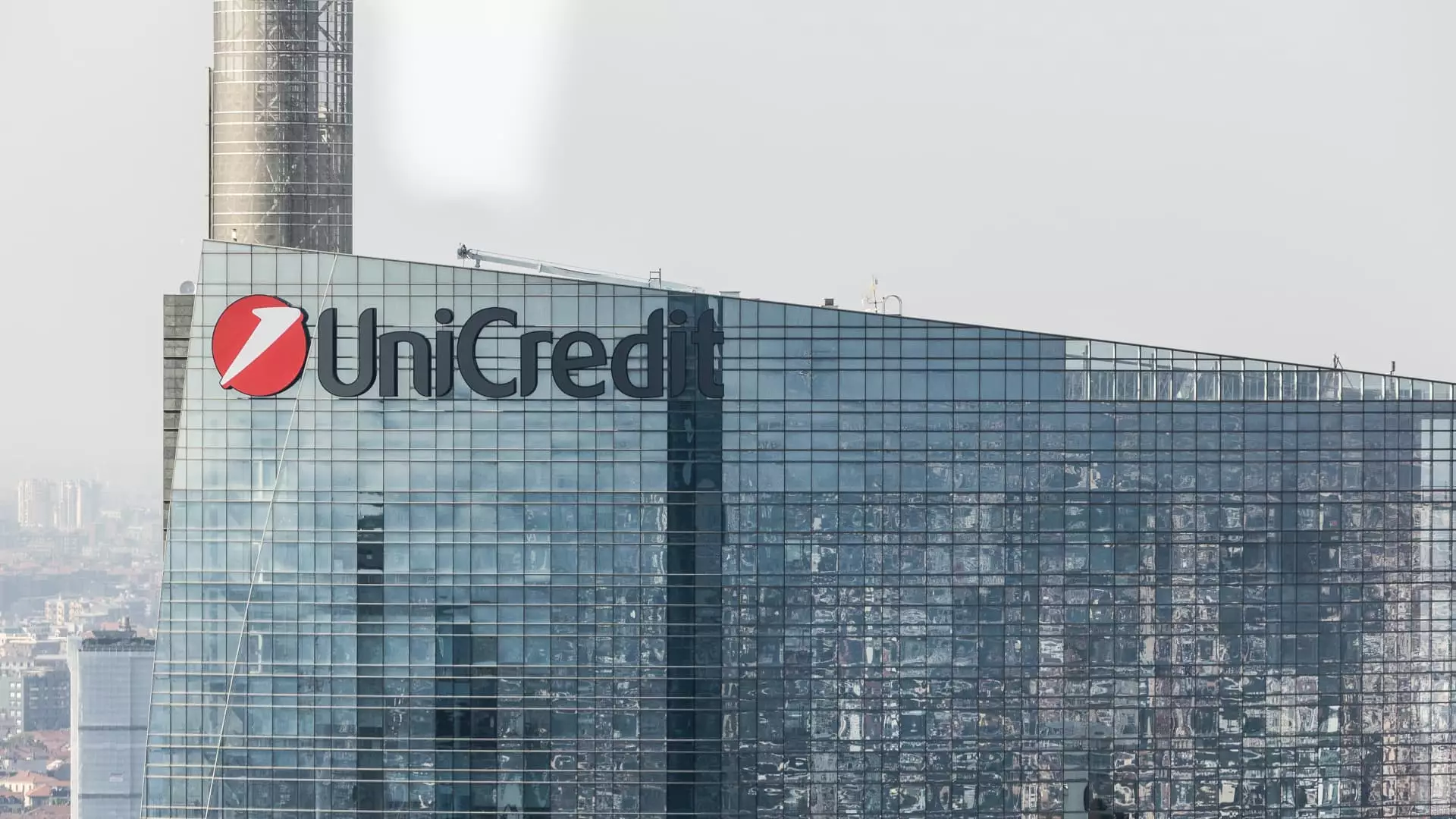Italy’s banking giant, UniCredit, has recently announced a significant increase in its potential stake in the German bank Commerzbank, elevating its holdings from 21% to an impressive 28%. This ambitious maneuver employs a combination of direct investment and derivative instruments, specifically a 9.5% direct stake complemented by approximately 18.5% achieved through derivatives. UniCredit’s engagement in the German banking sector signals a strong intent to not only consolidate its position but also to position itself favorably amidst ongoing economic challenges in Germany.
CEO Andrea Orcel’s strategy reflects a conviction in the latent value of Commerzbank, which he believes is yet to be fully realized. According to a press release from UniCredit, the rationale behind this increased stake aligns with a broader vision to assert influence within the German banking landscape, emphasizing the importance of a robust banking sector as a catalyst for Germany’s economic growth. However, it’s worth noting that, as of now, UniCredit has articulated that its involvement remains strictly investment-driven. This stance aims to mitigate potential misunderstandings while maintaining operational focus on its concurrent bid for Banco BPM, a significant Italian competitor.
The dynamics surrounding potential mergers in the banking sector are always nuanced, and Orcel’s ambitions are no exception. Analysts speculate that further sweetening of his bid for Banco BPM may be necessary for UniCredit to strengthen its competitive position domestically, especially against Italy’s largest bank, Intesa Sanpaolo. Despite the traction UniCredit has gained, the response from the German government, a significant stakeholder in Commerzbank, remains cautious. The administration’s previous resistance to Orcel’s overtures paints a complex picture, particularly in light of recent political instability marked by a coalition collapse and Chancellor Olaf Scholz’s political setbacks.
Despite these hurdles, analysts suggest a merger could foster significant synergies, particularly through enhanced capabilities in capital markets, payments, and trade finance activities. These synergies would not only benefit UniCredit’s operations in Germany but could also create substantial value for Commerzbank and the German banking system overall. The implications of such an amalgamation extend beyond mere financial metrics; they also impact strategic positioning within the broader European banking ecosystem.
As the market reacts to these developments, UniCredit’s shares saw a modest increase of 1.1%, while Commerzbank’s stock rose by 3.1%, reflecting investor optimism. This positive sentiment underscores the potential for upcoming negotiations involving UniCredit and Commerzbank, creating a climate of cautious optimism for stakeholders. As the situation unfolds, the broader implications for the banking sector, especially in the context of economic recovery and competitive strategy, will certainly warrant close observation.

